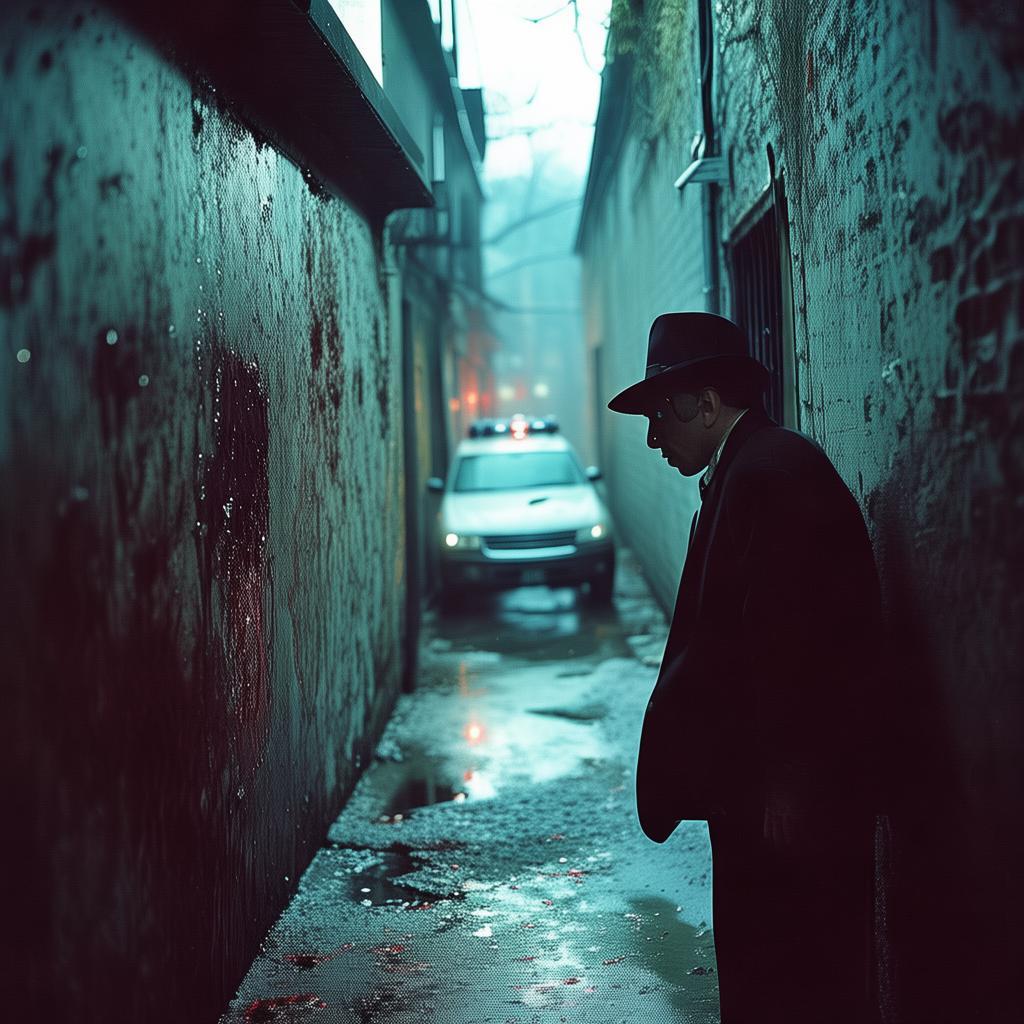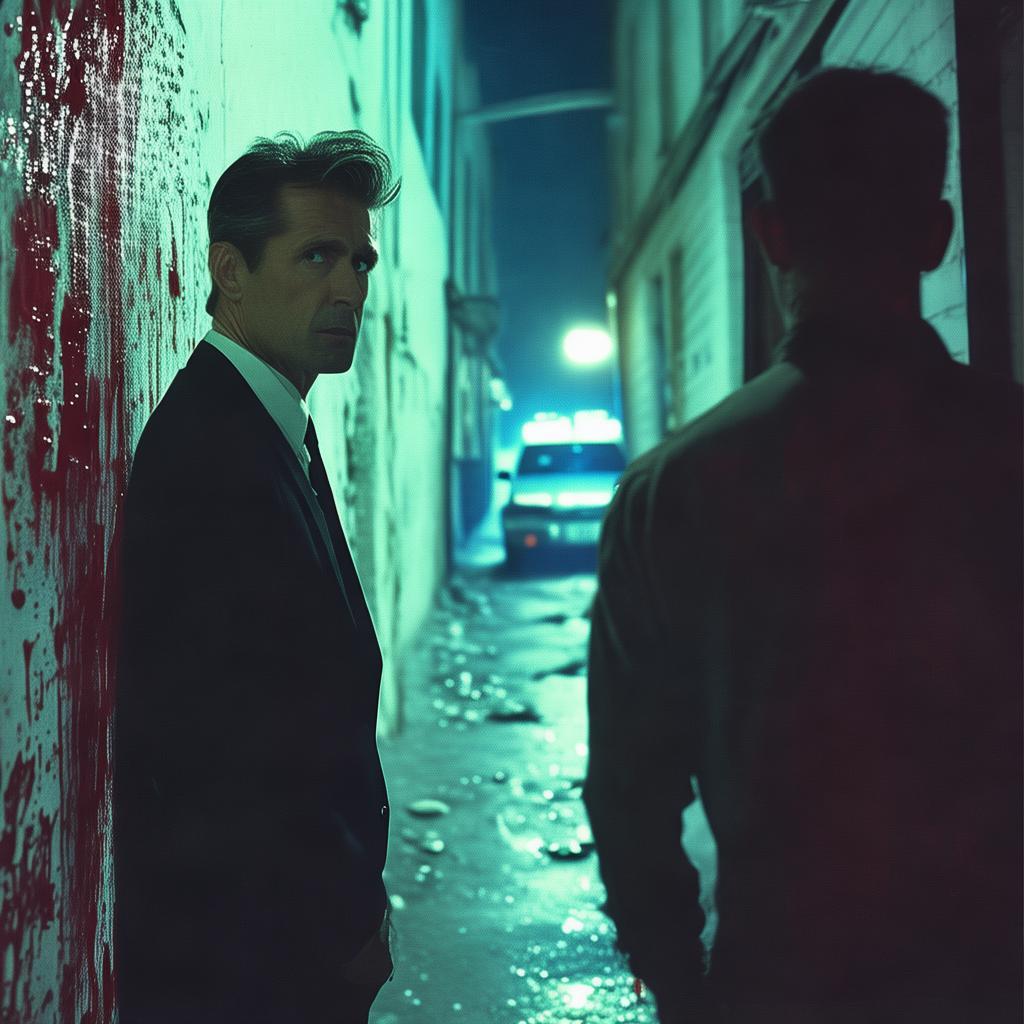The Shadow of the Smiling Face
The stage was set for the opening night of "The Clown's Curse," a new play that promised to be a comedic masterpiece. The theater was filled with an excited crowd, all eager to see the latest work by the renowned playwright, Thomas Langley. As the lights dimmed, the audience was drawn into the world of the play, where clowns were not just entertainers but also mysterious figures with a dark side.
In the wings, Thomas Langley stood, his hands trembling as he adjusted the final props. He had poured his heart and soul into this play, blending dark humor with a touch of the supernatural. The central character was a clown named Maximus, whose cheerful facade concealed a sinister purpose. Langley had always been fascinated by the dual nature of clowns, their ability to provoke laughter and fear in equal measure.

As the curtain rose, the audience was captivated by the performance. The clowns danced and pranced across the stage, their makeup a mask of joy and mischief. But something was off. The clowns seemed to move with an eerie precision, as if guided by an unseen hand. Thomas felt a chill run down his spine, but he dismissed it as nerves.
The play progressed, and the tension mounted. The clown Maximus became more and more menacing, his laughter echoing through the theater like the sound of a thousand devils. Thomas watched, his heart pounding, as the clown's actions began to mirror the dark events that had unfolded in the lives of the actors and crew.
First, it was the actress, Lila, who went missing after a late-night rehearsal. Her disappearance was ruled a misunderstanding, but Thomas couldn't shake the feeling that there was more to it. Then, the lead clown, Marcus, was found dead in his dressing room, a smile still etched on his face. The police ruled it a suicide, but Thomas knew there was something else at play.
As the days passed, the curse seemed to grow stronger. The actors began to act out of character, their behavior becoming increasingly erratic. Thomas's own sanity began to fray as he tried to piece together the puzzle. He was haunted by dreams of the clown Maximus, his smiling face looming over him like a specter.
One night, as Thomas was poring over his notes, he received a cryptic message: "The truth lies in the mirror." He went to his dressing room, where a large mirror hung on the wall. As he approached, the reflection of the clown Maximus appeared, his eyes glowing with malevolence. "You must face the truth, Thomas," he hissed. "The curse is real, and it will not be broken until you confront it."
Thomas's mind raced as he tried to make sense of the message. He remembered a passage from the play's script that seemed to hold the key: "The clown's curse can only be broken by the one who knows its origins." He realized that he had to delve deeper into the history of the comedy troupe to uncover the truth.
He began his investigation by interviewing the troupe's oldest member, an aging actor named Edgar. Edgar was hesitant at first, but as Thomas delved into the troupe's past, he revealed a tale of tragedy and betrayal. It turned out that the clown Maximus had once been a beloved member of the troupe, but he had been driven to madness by the curse. His actions had led to the downfall of the troupe, and his spirit had been trapped within the clown's costume.
Thomas knew that he had to break the curse by confronting the spirit of Maximus. He gathered the troupe together, explaining the truth to them. As they stood in a circle, Thomas reached into the costume of Maximus and pulled out a small, ornate box. He opened it to reveal a vial of what appeared to be a dark, thick liquid.
"Maximus, I know you are here," Thomas said, his voice steady. "This is the source of the curse. You must let go of your anger and fear, and allow your spirit to rest in peace."
As he spoke, Thomas poured the liquid onto the ground. The clown's spirit convulsed, and then, with a final, desperate wail, it vanished. The troupe erupted in cheers, and Thomas felt a wave of relief wash over him.
The next morning, as Thomas left the theater, he couldn't help but look back at the empty stage. The clown's curse had been broken, but the play would never be the same. The laughter and joy of the audience had been replaced by a sense of foreboding, a reminder of the dark secrets that lay hidden beneath the surface.
Thomas Langley knew that he had survived the clown's curse, but he also knew that the world was full of unseen dangers. He would continue to write, to explore the dark corners of the human psyche, but he would never forget the night when the smiling face of the clown had come to haunt him.
The play ended with a twist, the audience left in shock as they realized the true nature of the clown's curse. Thomas Langley had achieved his goal, not just in writing a successful play, but in exposing the dark truth that lay hidden beneath the surface of comedy and joy.
✨ Original Statement ✨
All articles published on this website (including but not limited to text, images, videos, and other content) are original or authorized for reposting and are protected by relevant laws. Without the explicit written permission of this website, no individual or organization may copy, modify, repost, or use the content for commercial purposes.
If you need to quote or cooperate, please contact this site for authorization. We reserve the right to pursue legal responsibility for any unauthorized use.
Hereby declared.









